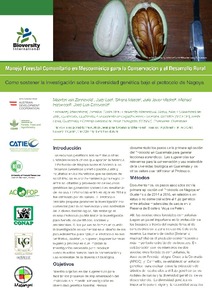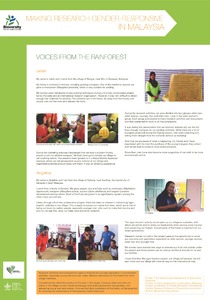Managing smallholder teak plantations: field guide for farmers
The typical practice by smallholder teak growers of letting trees grow without management input has resulted in poor quality plantations. Various questions arise when farmers start to better manage their teak plantations. This book provides practical guidance in addressing these questions by explaining in detail the techniques of parent tree selection, seed preparation, seedling production, planting, fertilising, thinning, pruning, controlling pest and disease and harvesting. To be more easily understood, the descriptions are complemented by illustrations, photographs or tables.



